Easy Home Remedies for Bleeding Gums
By Dr Siddharth Gupta +2 more

Get,

to manage your symptom
Get your,


4 Cr+ families
benefitted

OTP sent to 9988776655



You’ve successfully subscribed to receive
doctor-approved tips on
Whatsapp

Get ready to feel your best.

Hi There,
Download the PharmEasy App now!!


Register to Avail the Offer
Send OTPBy continuing, you agree with our Privacy Policy and Terms and Conditions

Hi There,
Sign up on PharmEasy now!!
Trusted by 4 crore+ families

OTP sent to 9988776655



You have unlocked 25% off on medicines




Code: NU25
By Dr Siddharth Gupta +2 more
Table of Contents
Bleeding gums are a common oral health issue and often an early symptom of gum disease. They mainly occur due to plaque accumulation in the gums. This in turn can lead to inflammation and swelling of the gums known as gingivitis1. When plaque is not removed from the gums, it will harden leading to the formation of a substance called tartar. As a result, there will be increased bleeding and the development of periodontitis (a serious gum infection that affects the soft tissue and bone that anchors the tooth)2.
When gum bleeding is evident during brushing or flossing, it might be ignored thinking it is normal. However, bleeding gums can sometimes indicate a serious underlying medical condition. Sometimes, bleeding gums can occur when you brush your teeth very hard or when you wear ill-fitted dentures. Bleeding gums can be remedied by taking simple measures like maintaining good oral hygiene, consulting the dentist regularly, quitting smoking, and consuming a healthy, well-balanced diet3.
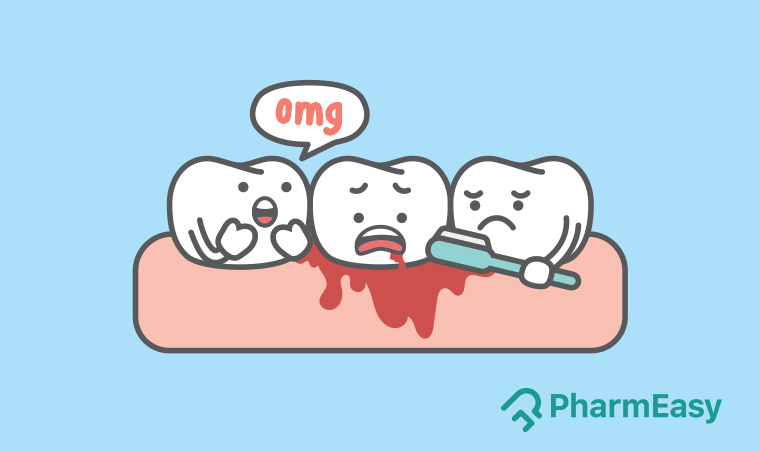
Gum bleeding can occur due to local (oral) problems or systemic (underlying medical conditions) factors.
Local factors include:
Systemic factors include:
Did you know?
While examining your oral cavity, when looking for a cause for bleeding gums, the dentist might find signs like3
These signs can help your dentist diagnose the cause of gum bleeding.
Simple measures can be taken at home to prevent bleeding gums. Some measures include3:
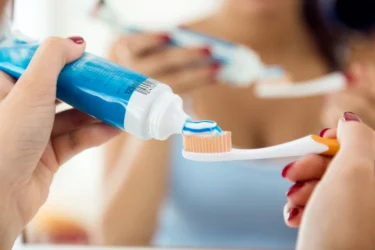
Gum bleeding is a sign of poor oral hygiene. Gums bleed or become swollen when there is plaque accumulation at the gum line. For pregnant women, good oral hygiene is extremely important3.

A diet rich in vitamin C can boost the functioning of your immune system. It can also help prevent gum infections that lead to bleeding gums. A deficiency of vitamin C can make your bleeding worse if you have gum disease. Some sources of vitamin C include sweet potatoes, carrots, red peppers, and oranges.
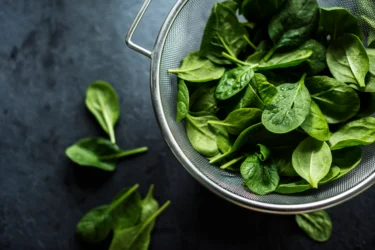
Consuming vitamin K supplements can help relieve bleeding gums. Vitamin K is necessary to make your blood clot. The deficiency of vitamin K can result in easy bleeding. Some sources of food rich in vitamin K that you can easily include in your daily meals are kale, green cabbage, mustard leaves, and spinach3.
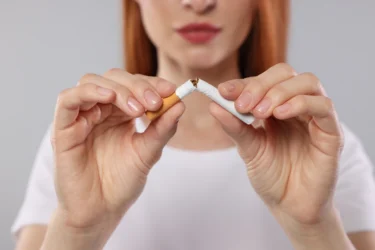
When you smoke, your body’s immune system weakens. This makes it difficult for your body to combat plaque bacteria which leads to gum disease. Quitting smoking can aid in the healing of your gums and the cessation of bleeding.

Hydrogen peroxide helps eliminate dental plaque, stops bleeding gums, and also leads to healthy gums. You can rinse your mouth gently with hydrogen peroxide when your gums are bleeding. You must take caution not to swallow the solution.
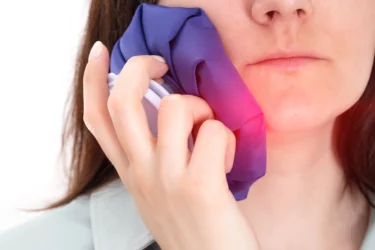
A cold compress when applied at the gum line can control swelling and restrict bleeding. It also helps control inflammation. You can apply an ice pack to your gums several times a day to reduce bleeding3.
Also Read: Home Remedies For Sensitive Teeth By Dr. Rajeev Singh

Having green tea daily can help relieve gum bleeding as it contains a natural antioxidant called catechin. Catechin can decrease the body’s inflammatory reaction to bacteria in the mouth3.
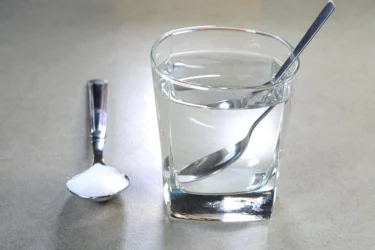
Since gum diseases are caused mainly due to bacterial growth and inflammation in the mouth, rinsing your mouth with warm saltwater daily can help decrease bacteria in the gums and help you get relief from bleeding gums. Add salt to tepid water and rinse your mouth for a few seconds throughout the day at regular intervals to get respite from bleeding gums.
Also Read: Home Remedies For Throat Infection By Dr. Siddharth Gupta
It is essential to visit your dentist if2:
Also Read: Home Remedies For Teeth Whitening By Dr. Siddharth Gupta
Gum bleeding can occur while brushing or even on its own. You will know if you have bleeding gums when you notice a pink tinge in the sink during brushing. This may be associated with swollen or painful gums. Gum bleeding could occur due to many reasons like bleeding disorders, brushing forcefully, improper flossing, hormonal changes during pregnancy, or some vitamin deficiencies. The main reason for bleeding gums is plaque accumulation at the gum line. If proper oral hygiene is not maintained by regular brushing and flossing, there might be tartar formation. Tartar can only be removed by a dental professional. Taking simple home care measures like maintaining good oral hygiene, quitting smoking, using a cold compress, taking vitamin supplements, and visiting your dentist regularly can help prevent gum bleeding and take appropriate remedial measures in time.
Also Read: 12 Natural Remedies For Mouth Ulcers
The soft tissue lining the inner surface of the mouth is referred to as gingiva or gums. Gum bleeding can indicate anything from a minor problem like brushing too hard that can be easily corrected to something much more serious, like diabetes4.
Having a healthy diet comprising of various fresh fruits and vegetables, avoiding eating too much processed foods and foods containing sugars, can help treat bleeding gums3.
Gingivitis (inflamed gums) can result in red, swollen and bleeding gums. This can cause a bad breath4.
Yes, you might present with symptoms like red, swollen or bleeding gums when you have diabetes. Due to high blood glucose levels, there is an increase in glucose in the saliva. When there is an increase in glucose, the bacterial count increases. When bacteria combine with food, there is formation of plaque. When this plaque hardens and develops near your gum line, it can result in gum disease. 6
Disclaimer: The information provided here is for educational/awareness purposes only and is not intended to be a substitute for medical treatment by a healthcare professional and should not be relied upon to diagnose or treat any medical condition. The reader should consult a registered medical practitioner to determine the appropriateness of the information and before consuming any medication. PharmEasy does not provide any guarantee or warranty (express or implied) regarding the accuracy, adequacy, completeness, legality, reliability or usefulness of the information; and disclaims any liability arising thereof.
Links and product recommendations in the information provided here are advertisements of third-party products available on the website. PharmEasy does not make any representation on the accuracy or suitability of such products/services. Advertisements do not influence the editorial decisions or content. The information in this blog is subject to change without notice. The authors and administrators reserve the right to modify, add, or remove content without notification. It is your responsibility to review this disclaimer regularly for any changes.
Comments

Leave your comment...
You may also like
Comments